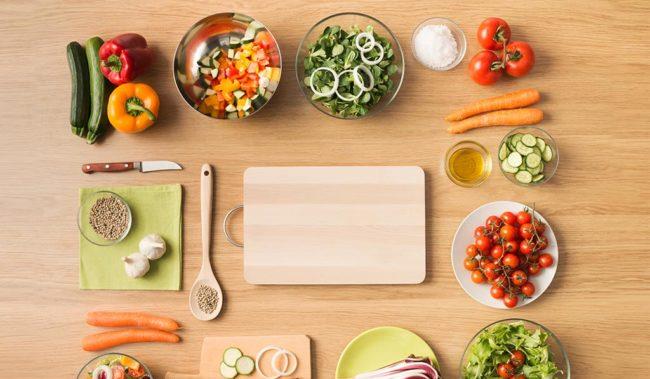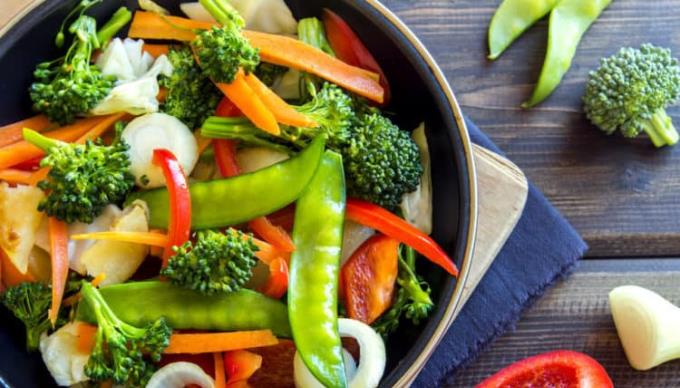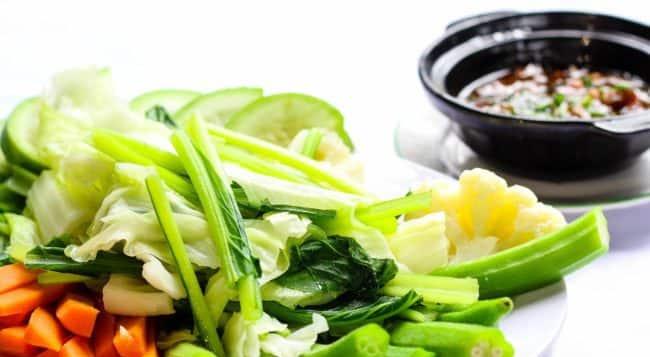Does vegetarian diet provide enough vitamins and minerals for the healthy development of the fetus? Therefore, if mothers follow a vegetarian diet during pregnancy, building a scientific vegetarian diet for themselves is very necessary.
Vegetarian means a diet free of meat, fish or eggs. Many people choose this diet because of their beliefs or simply want to eat frugally. During pregnancy, the body needs a lot of nutrients to feed the baby in the womb.
So, even if you are vegetarian, you need to make sure your diet meets the nutritional requirements that your baby needs. In order to be a vegetarian during pregnancy, you can find out more necessary information through the article of aFamilyToday Health .
Does vegetarian diet during pregnancy meet the nutritional needs of the baby?
Not vegetarian pregnant women will be deficient in essential vitamins and minerals. Fasting throughout pregnancy still ensures a sufficient supply of nutrients for the fetus if your diet is food-rich.
In addition, you can take some additional supplements to ensure you get enough nutrients. A standard vegetarian diet should include a variety of fruits , legumes and plant-based milk, along with a number of other important nutrients. ( 1 )

Here are the nutrients your body needs during pregnancy:
1. Protein
Protein is essential for making cells in the body and helps release hormones that support fetal development.
Every day, pregnant women need about 75g protein. If you use milk and eggs, you can get protein and amino acids from these foods. Otherwise, you can add some protein-rich foods to your diet:
Peas, chickpeas
Kidney beans, black beans and chrysanthemum beans
Oat
Whole grains and breads
Walnuts, pistachios, cashews, almonds, pine nuts ...
Soymilk
Tofu
2. Calcium
Calcium is very important for the formation of bones in the fetus. In addition, it is also essential to support the function of the nervous system, heart and muscles.
If calcium is deficient in your diet, your body will automatically take calcium from your bones to nourish your baby. This puts you at a higher risk of osteoporosis. Every day, pregnant women need to absorb 1,000mg of calcium. Some sources of calcium you can try:
Milk, yogurt, cheese
Dark green leafy vegetables
Soymilk
Tofu
3. Iron

Iron is essential in the creation of blood cells. Pregnancy causes the blood volume in your body to increase about 50% to support your baby's development.
Iron deficiency can lead to anemia, if severe it can lead to premature birth. If you have iron deficiency, you will need to take iron supplements. Every day, pregnant women need about 27mg of iron.
Here are some iron-rich foods to include in your diet:
Soybeans, green beans
Products made from soybeans: tofu, soy milk ...
Oat
Barley
Learn more: Iron-rich foods for pregnant women
4. Vitamin B12
Vitamin B12 is an essential nutrient for brain development and the formation of genetic material during the first trimester. Vitamin B12 deficiency can cause the fetus to have a neural tube defect and increase the risk of preterm birth . Vitamin B12 is found in salty foods. Therefore, vegetarian pregnant women will have a higher risk of deficiency.
Vitamin B12 and folic acid are important nutrients that should be taken as prescribed by your doctor. Every day pregnant women need about 2.6 mcg of vitamin B12. You can get them through foods: fortified cereals with vitamin B12, soy milk, and meat substitutes.
5. Vitamin D
Vitamin D is very important for the body's absorption of calcium. Vitamin D deficiency can lead to complications such as congenital rickets (a condition in which a baby's bones are improperly formed, easily weakened and broken). Every day, pregnant women need 5mcg of vitamin D.
Some sources of vitamin D:
Vitamin D supplements
Milk
Sunlight
6. Zinc
Zinc is essential in the formation of DNA for a baby's body ( 2 ). In addition, zinc also helps create new cells, supports tissue growth and helps your baby's body develop normally.
Zinc is usually supplemented through the prenatal vitamin pill, prescribed by your doctor. Every day pregnant women need about 11mg iron. You can get more zinc through legumes.
7. Iodine
Iodine is essential for the development of the baby's brain and nervous system. In addition, iodine also plays a role in regulating thyroid function and metabolic rate. Iodine deficiency can increase the risk of preterm birth, miscarriage and stillbirth .
Every day, pregnant women need about 220 mcg of iodine. Some iodine-rich foods to try:
Potato
Milk
Iodized salt
8. DHA
DHA is an omega-3 fatty acid. Vegetarians are often deficient in this nutrient because it is abundant in fish, fish oils and algae. DHA is very important for your baby's brain and eye development.
Each day you need about 1.4g DHA. You can get DHA through prenatal supplements, algae products, and dark green leafy vegetables.
Vegetarian foods for pregnant mothers

To get all the necessary nutrients from vegetarian food sources for the development of the baby, pregnant women need to follow a diet that includes these foods:
1. Vegetables
Mom needs 4 servings of vegetables per day. Each serving contains 1 cup cooked or raw vegetables. Also have at least one dark green vegetable.
2. Fruit
Fruit can be used as an ingredient for cooking, processing or as a fresh fruit or juice or smoothie.
4 servings of fruit a day are necessary for mothers. Each serving includes ½ cup cooked fruit and 1 cup of juice. Alternatively, you can add khô cup dried fruit, nước cup juice and 1 piece of fresh fruit.
If you do not know which juices are good for pregnant women, find out: 7 kinds of fruit juices good for pregnant mothers can not help but try
3. Whole grains, breads, cereals
For this type of food, pregnant women need 9 servings per day. A serving consists of a slice of bread, or half a piece of bread. Instead. can be changed to ½ cup of rice or cereal or other pasta.
4. Nuts, wheat germ
1 or 2 servings per day is good enough. Each serving has 2 tablespoons of seeds or nuts, 2 tablespoons of wheat germ and 2 tablespoons of nut butter.
5. Legumes, soy products, colostrum-dairy products
You will need 5-6 servings per day for the best protein intake.
One serving is ½ cup of cooked beans, or tofu, 225 grams of fortified soybeans or other non-dairy milk. At the same time, add about 85 grams of substances with the same nutrient content as meat.
Vegetarian menu for pregnant women
Here is a typical vegetarian menu that fully satisfies your body's nutritional needs that you can consider ( 3 ):
Morning
1 cup fortified cereal with vitamin B12, 1/4 cup raisins and 1 cup soy milk
2 slices of whole grain bread with 2 tablespoons of almond butter
3/4 cup of calcium-fortified fruit juice
Noon
Sandwich with 2 slices of bread, cabbage and half a cup of tofu
2 cups of lettuce mixed with herbs
Lemon juice and 1 piece of fruit
Snack
2 tablespoons nuts
1 cup of mixed fruit
3 - 4 whole grain crackers.
Dinner
1/2 bowl (cup) rice with 1 cup boiled red beans
1/2 cup boiled broccoli
1 cup spinach
1 cup of soy milk
Hopefully the above information will help mothers have a reasonable and healthy vegetarian diet during pregnancy. Mothers need to pay attention to their pregnancy nutrition as well as monitor the development of the fetus to ensure the baby is healthy, to avoid the situation of low birth weight .
aFamilyToday Health does not offer medical advice, diagnosis or treatment.














